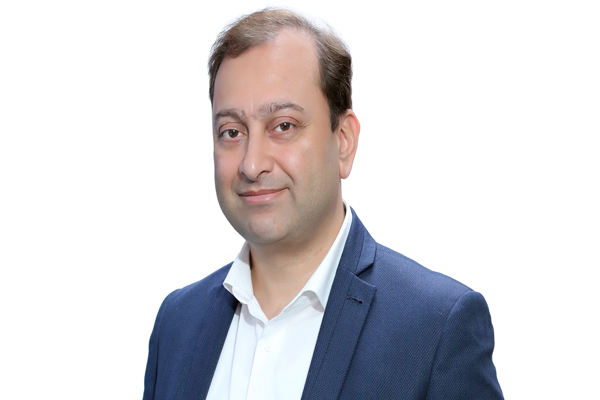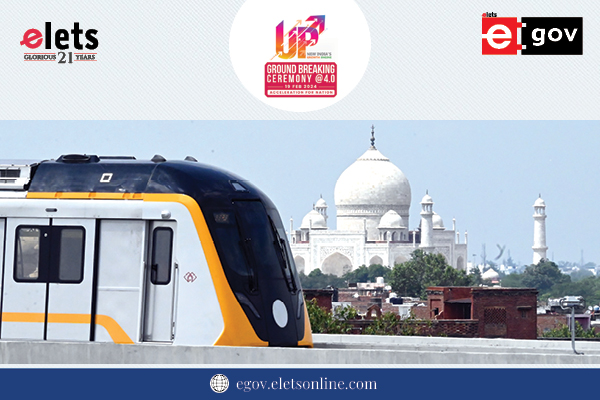
India is a big country with a large population, which sees us facing some equally sizeable challenges. Providing positive life outcomes to such a large populace starts with investing in foundational social capabilities. Improving healthcare and education and building up financial literacy is essential for creating the circumstances for individuals to thrive and help their communities, writes Rahul Sharma, President – Public Sector, AISPL, AWS India and South Asia.
Over the past decade, we have increasingly seen business and service providers across India adopt cloud technology to achieve these positive outcomes. But judging by the predictions recently shared by our global Vice President and Chief Technology Officer Werner Vogels, the speed at which cloud technology evolves means we are only at Day One of what’s possible.
Many of our customers are using our cloud technology for social progress and inclusion, from fast-growing health and education providers to emerging agri-tech businesses, and services for boosting financial and social inclusion.

One example is the Wadhwani Initiative for Sustainable Healthcare (WISH) Foundation, whose mission is to improve the health of underprivileged people in India by addressing accessibility, equity, and quality of health services. WISH Foundation uses the cloud to securely store and manage large data sets containing confidential health data.
Also Read: Fighting Nation-State Cyber Adversaries: Wait Until it Hits or Re-think the Approach

Another example is English Helper, whose reading and comprehension tool, called ReadToMe, uses artificial intelligence to help boost literacy in primary school children in India and around the world. In 2013-14 ReadToMe helped 20,000 students. By the end of 2021, the number will cross 20 million.
Also, we see our cloud technology being used to unravel environmental challenges such as air pollution. The UN World Health Organization (WHO) reporting that air pollution is a factor in one in eight deaths worldwide, and now the non-profit technology organisation OpenAQ is using cloud computing to facilitate the sharing of air quality data for communities globally.
In each of these instances, cloud services allow organizations to grow quickly without having to spend money upfront on computer hardware and grow their usage when they need to. That means they can manage huge volumes of data – and customers – that would have been inconceivable just a decade ago and there is plenty more to come.
At our global AWS Re:Invent conference, held virtually for the first time last December, Werner Vogels outlined eight predictions that will boost the cloud’s ability to tackle the challenges we face, and many of these developments are specifically important for India.
For starters, the cloud will be everywhere. Older models of computing were centralised in data centres, but the cloud makes computing available in even the most remote locations, from rural communities and remote wilderness areas through to near-earth orbit!
This means the cloud is being brought closer and closer to where it is needed, whether that is in someone’s kitchen or on the handlebars of their bike.
When combined with high-speed networks we see new capabilities emerge for gathering and analysing data quickly and using it to improve people’s lives.
A critical building block in the cloud is artificial intelligence (AI), and specifically the machine learning (ML) technology that helps AI become smart quickly. The huge volumes of data we gather today are too large for people to analyze themselves. But, by making cloud-based ML tools more powerful, cost-effective, and easy to use, we put them into the hands of the people who need them.
Also Read: NTT enables the latest technology trends for the leader in India’s banking and money market system
This is proving especially helpful for communities who previously had little access to technology. The rapid spread of easy-to-use cloud data capabilities enable small farm-holders in Southeast Asia and sub-Saharan Africa boost the yield of their crops, without having to invest the time and expense of building these tools themselves, and these same outcomes are already being achieved in India. For example, our customer CropIn is helping farmers in Bihar and Madhya Pradesh tackle the adverse effects of climate change and adopt climate-smart agricultural practices faster, while Hyderabad-based Kalgudi’s AI-based commerce portal creates intelligent marketplaces that aggregate demand and supply and facilitate transactions with digital assistance.
All of Werner’s predictions bode well for the many emerging businesses that are striving to make a big difference in people’s lives, and every day we are astounded by the ways in which we see our customers using cloud technology to create outcomes we could have never predicted.
While 2020 has been a challenging year, we know that there are still many more challenges ahead, and we look forward to helping our customers to solve them in the most effective and efficient ways possible.
If there is one prediction that I would like to make for this year, it is that the imagination and skill of our customers and their dedication to solving the challenges we all face will never cease to astonish us.
Be a part of Elets Collaborative Initiatives. Join Us for Upcoming Events and explore business opportunities. Like us on Facebook , connect with us on LinkedIn and follow us on Twitter, Instagram.











